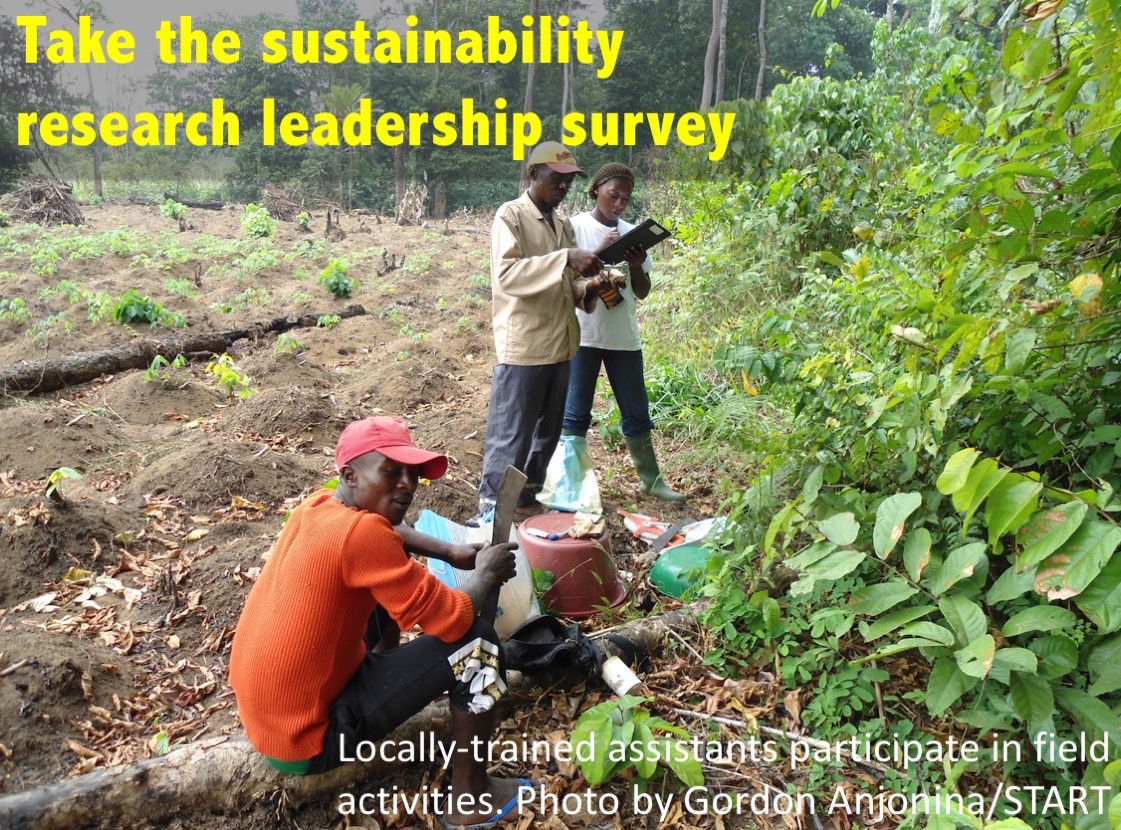Take the sustainability research leadership survey
Calling ecological researchers around the globe:
How do you collaborate across disciplines and institutional sectors?
A guest post by Josh Tewksbury, natural historian, global hub director of Future Earth, board member for the Leopold Leadership Program, and a research professor at the University of Colorado, Boulder
The Leopold Leadership Program, Future Earth, START, and researchers at the University of Colorado Boulder would like 15 minutes of your time for a survey they have co-developed. The anonymous results will help them learn how to facilitate capacity for transdisciplinary research on sustainable development around the world.
[button link=”https://stanforduniversity.qualtrics.com/SE/?SID=SV_9H50g5Pjpu0q0OF” color=”red” newwindow=”yes”] take the survey[/button]
- Who: graduate students and post-docs; pre-, post-, and non-tenure-track folks in academic institutions; and researchers working in NGOs, think tanks, government, and the private sector
- Why: To build understanding of the skills, tools, competencies, and other capacities which researchers need in order to construct usable knowledge for sustainable development
- Intended outcomes: 1) A peer-reviewed paper; 2) a white paper to inform funding communities about where the gaps are; 3) data to inform program strategies for our organizations and for funders
- Time commitment: 10-15 minutes to complete the survey
Future Earth, the Leopold Leadership Program, and START, a global science capacity building organization, want to gain a greater understanding of the barriers, motivations, skills and competencies that researchers face as they attempt to work across disciplines and with non-research professionals. The three organizations collaborated with Amanda Carrico an expert on survey design at the University of Colorado Boulder, to come up with the first global assessment focusing on these issues.
The first survey is now live. It takes about 15 minutes to complete and focuses on the skills, tools, and capacities which researchers need in fields critical to conservation and sustainable development in order to co-construct credible, relevant scientific knowledge with users of that knowledge. In addition, the survey explores the motivations for this work, and the barriers researchers face when they go down this path.
The survey and associated information are anonymous.
Our goal is to capture the diversity we need to provide some of the first global information on training needs for researchers who want to work across disciplines in fields related to conservation and sustainable development. We want to hear from people across the research community: graduate students and post-docs; pre-, post-, and non-tenure-track folks in academic institutions; and researchers working in NGOs, think tanks, government, and the private sector.
We have results from almost 90 countries so far, but the penetration in ecology is still low. I would love to use the results of the survey to learn how ecologists see these problems, compared with, for example, economists, or engineers.
The results from this survey, and a second survey that will target non-research professionals working with sustainability research, will help all of us build smarter, more responsive capacity-building programs, and it will help us communicate key priorities to funding organizations who are increasingly seeing the need for this training, but do not have the data they need to make strategic investments.
Sign up for more news about the survey, capacity building, and other activities at Future Earth. We will use the newsletter to keep folks in the loop when survey results come on line.
- The survey page on the Future Earth website
- Direct link to the sustainability research leadership survey
